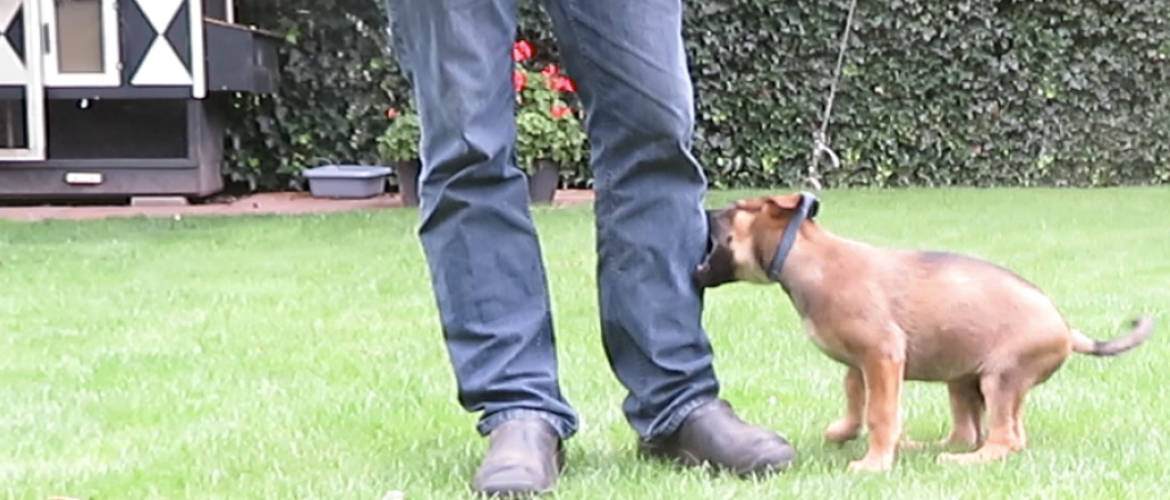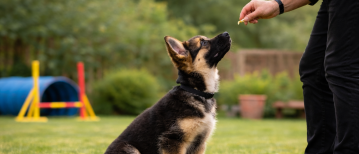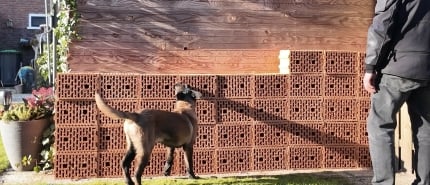My puppy is biting me…HELP!
A pup that bites is a common problem. Everyone who has ever had a pup can relate to this. Wounds to hands and legs, broken pants, skirts and tights all caused by the sharp teeth of the puppy.
I have met countless people with such a pup who asked for help. Often desperate, because the pup kept biting despite the fact that they stopped playing, gave a shout or offered an alternative. Often it was also indicated that the pup was often insufferable in the family but against for example the older dog of the neighbours very respectful and submissive.
But how does this work with dogs? I have bred many litters over the years and learned a lot from observing the puppies. In the litter, the puppies start playing with each other from about four weeks of age. They bite and fight with each other but if the bite is too hard the victim gives a little scream or the offender is snarled at. We as humans can and should do exactly the same. Give a scream and stop the game or correct the puppy.
If we have a sweet little puppy that nibbles on our fingers, we don’t really need to correct this puppy. Stop playing and give an alternative in which the pup may bite is then soon enough to this behavior in good channels.
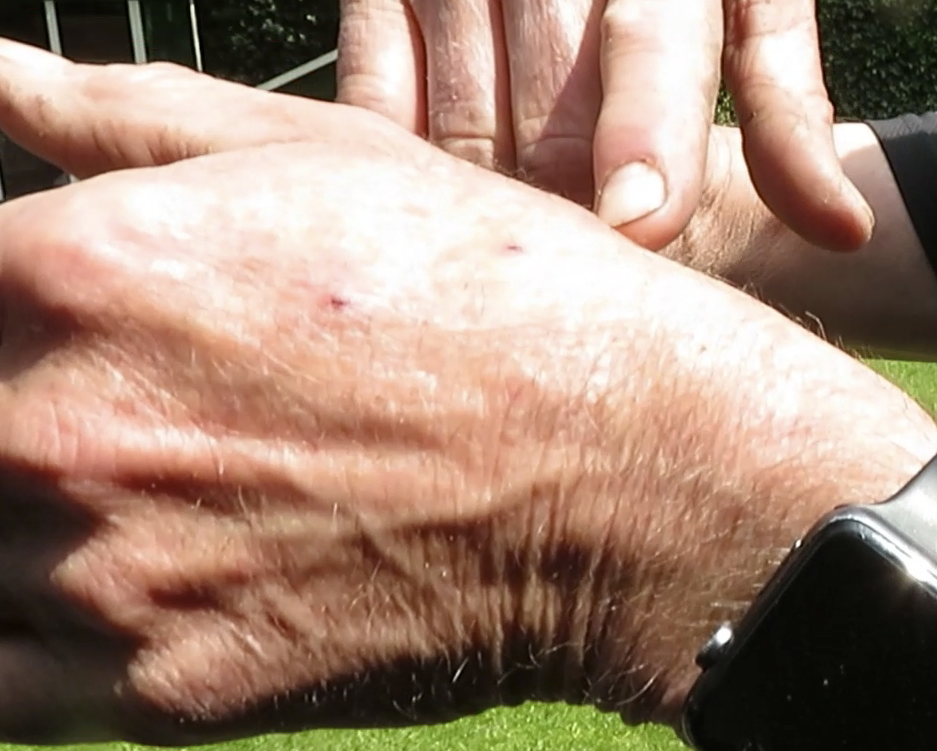
We as humans don’t need to punish harshly if we are honest and clear early on
It’s different with feisty puppies who keep biting the boss or the children. This often to the point of bleeding. In this case I always advise to be clear in an early stage about this unwanted behavior. By discouraging this with policy and if necessary correct. A puppy of 8 weeks or older that bites an adult dog in a way that is too hard, is normally corrected directly by the older dog in a clear way and its place is pointed out. Growling, showing the teeth followed by a for human standards often unprecedentedly hard correction.
We as humans do not have to do this so hard. The puppy that bites the hands or pants immediately hears a “No” after which we make sure the biting stops. This can be done by opening the mouth of the pup calmly with the hands and if the pup is loose, by giving an alternative in which he may bite. If the pup does not accept this, we must do the same as the older dog. Again a “No” (growl), then a warning with the hand (show teeth) and if necessary a corrective tap with the same hand against the side of the puppy’s snout (bite).
How hard this correction must be, depends on the pup, but in any case such that the pup stops biting. Stops the pup – perhaps slightly impressed – with the bite, then we stroke the pup with the same hand. And we give the pup also simply the possibility to bite in the hand. If necessary we repeat the correction. Does that go well and the pup no longer bites, then we can now give an alternative such as for example a bite-roll and these as it were in its mouth push. The pup hears then immediately “Well done, good”. This as a sign that his boss about that behavior is very satisfied and that he may bite in it.
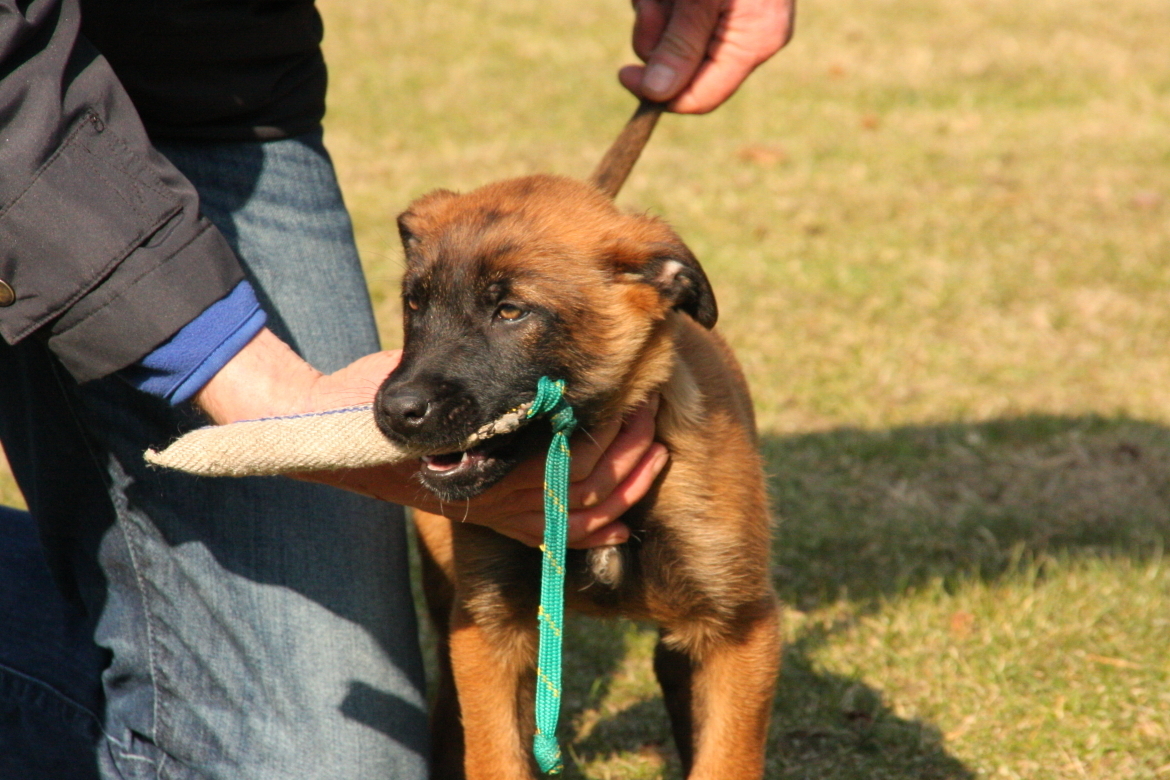
Later you hardly need to correct
It is very important to manage biting in this way in spirited puppies. By doing this in an early stage in this way, there is actually hardly any need to correct afterwards. The puppy has respect for us just like the older dog. The unwanted behavior gets no chance to develop. In addition, the pup has also learned that he may well bite an alternative. This is very important for puppies but also because in the future we may want to do bite work. But then only in the bite-roll or other toy but no longer in our hands or pants.
Timing is always important when raising and training a dog. Also with these problems it is of course important to react at exactly the right moment, both negative and positive. Only then will it become clear to the puppy very quickly what it can and cannot do.
What is the best way to prevent this unwanted biting behavior in the future? Make sure that this behavior cannot develop!

